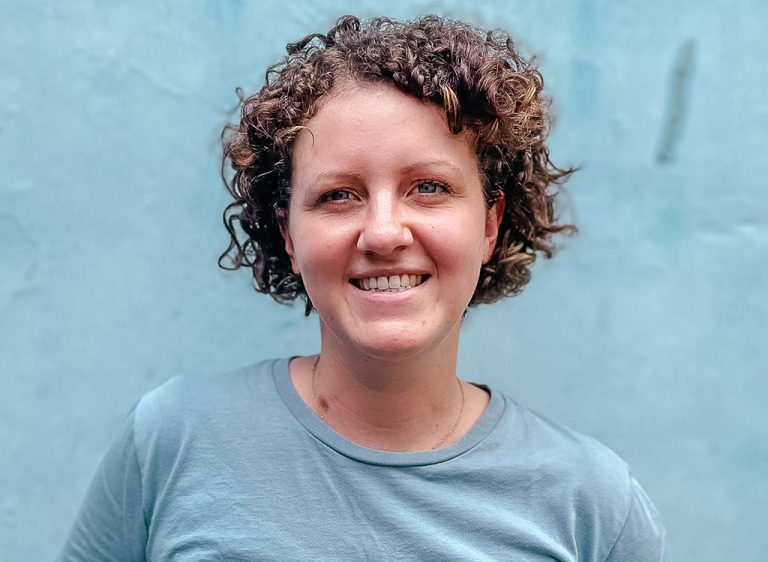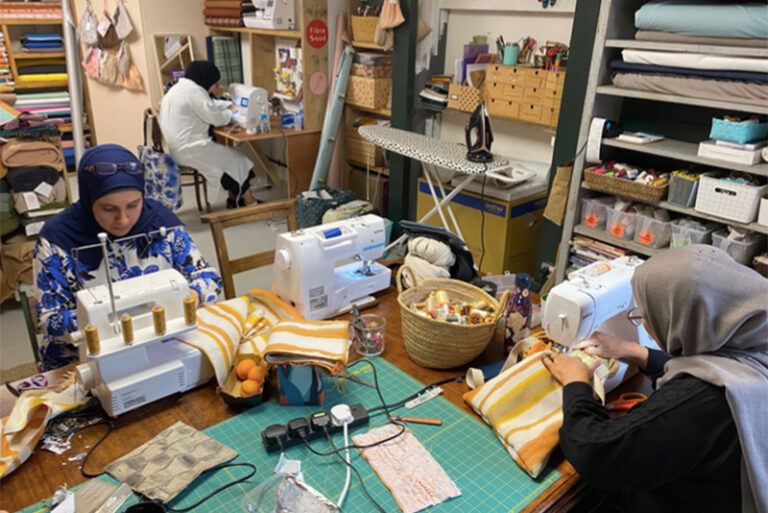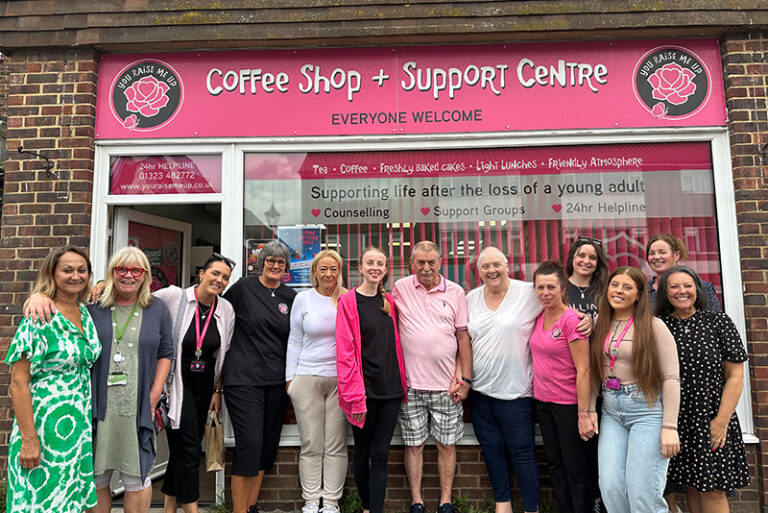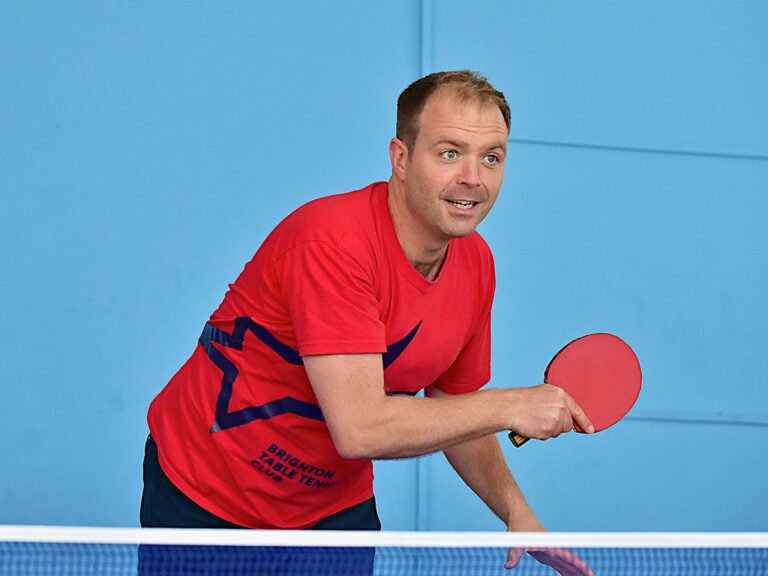S.A.F.E. Kenya, which stands for Sponsored Arts for Education, joined forces with the Enjoolata Foundation on a project that combined environmental protection with promoting women’s rights.
We funded the training of 12 young women to become peer educators and outreach ambassadors and have helped them amplify their impact, using street theatre, films, and community programmes to educate, inspire and deliver social change.
We caught up with Alice Crookenden, Head of S.A.F.E., about their phenomenal work in Kenya’s communities.
It’s a wintery afternoon in London, but as soon as Alice’s face appears in the Zoom meeting, she paints a vivid picture of the oppressive humidity where she lives on the coast of Kenya.
“Maybe one day I’ll get used to it.” She says she’s been there for almost seven years.
Alice’s face lights up when we ask about the art at the heart of S.A.F.E. Kenya and why that’s a fundamental part of what they do. Art allows them to explore highly stigmatised conversations, whether it’s a song, film, or piece of theatre.
“It all started with a song,” Alice tells us. “That’s how Enjoolata first got involved with us. The song was about female genital cutting (FGC), and it played out the dialogue in the community around it.
“We have one group singing in favour of FGC continuing and one singing for its abandonment. As the song continues, more and more people join the group who are singing about abandoning it. The abandonment group just gets louder and louder and more energetic. And then, in the end, while there is still a divide between the groups, they decide to sit down and talk about it.”
That was how they brought people together to discuss a topic they would never have spoken openly about otherwise.
“It is a way to allow people to talk about FGC without fear of community stigma because they could talk about the messages and the songs rather than their feelings. They could share support if they felt it without being worried about getting arrested.” Alice explains.
And that’s how the FGC work started. After a while, reaching the girls affected by FGC became harder.
They began in 2008 when their team was relatively young, in their late teens and early 20s. Fast forward to 2022, and they were all in their mid-30s. And so, the gap between them and the girls who were at risk was getting wider and wider.
“And that’s when we decided we needed a new group of younger women who were closer to the age of the girls to reach out to them. So, instead of having a dialogue with people about FGC abandonment, the new group of young women would go in after the performance and talk to girls on their level.
“We also decided it was a good time to bring in environmental messaging because the two issues go hand in hand. With increased drought and environmental destruction, the community is becoming more vulnerable; livelihoods are disappearing. Therefore, money for girls’ education and to support your girl outside of marriage so she doesn’t have to marry young were dwindling.”
They saw that although people wanted to abandon FGC, it remained in place because families couldn’t afford to have their daughters at home.
So, they decided that, as well as reaching out to their peers, the ambassadors could talk about managing resources in the family and how the community could come together to preserve their environment better. And by doing that, maintain the family finances, which helps protect the girls.
“As well as identifying and training these 12 ambassador women from the Loita Hills, Enjoolata helped us to develop an Outreach Programme that reached out to girls during the long school holidays when most FGC happens because girls are out of school, they’ve got time, and no one’s going to notice.
“Their funding helped us monitor the vulnerable girls in the villages, interact with their families, and talk about why they should be protected from FGC. That led to a significant reduction in the number of girls who were cut.”
On the art side of things, Enjoolata funded some of the 12 ambassadors to become the key characters in the latest film that S.A.F.E. made called ‘Sarah,’ which will be released in a few months.
“It’s about FGC and the Loita Hills, and it turns out that some of the girls we had identified as ambassadors are also incredible actresses. So now, thanks to the Enjoolata programme, we have a pool of talented actresses who can create new theatre pieces and films for us that can get our message out there further.”
As we’re saying goodbye, we ask Alice why she joined S.A.F.E. in the first place.
“Witnessing the transformative impact of storytelling through theater profoundly affected me,” Alice tells us.
“It revealed the power of addressing highly stigmatised or misunderstood issues through art. Our work delves into such topics, and art becomes the catalyst for change. Our team members have personal connections to the issues we address, making our approach more impactful. For instance, our project manager underwent FGC at a young age, driving her determination to end it. Having such strong role models within our team adds to the success of our programs.”
You can learn more about Alice and her team’s incredible work at S.A.F.E. Kenya here.



